Coronavirus: Fall in wages puts IR in the to-do list
Private sector pay fell in the June quarter for the first time in the history of the wage price index, as the pandemic sparked cuts.
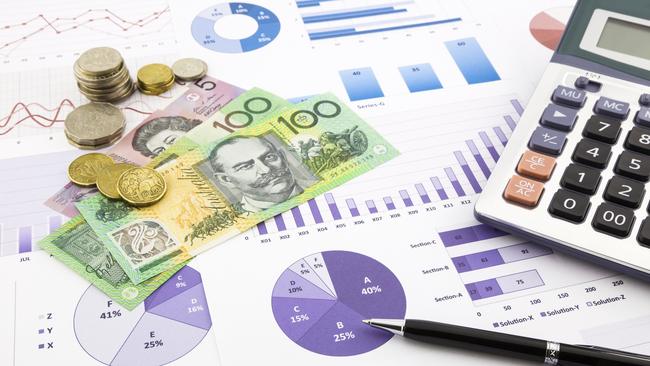
One of the nation’s top economic advisers has ramped up calls for industrial relations reform after private sector wages fell for the first time in more than 20 years as the COVID-19 pandemic hit highly paid professionals and Victoria’s second wave sparked a collapse in consumer confidence.
Productivity Commission chairman Michael Brennan told The Australian labour market reform must underwrite the recovery as tensions mounted between unions and business over falling wages and a failure to boost productivity.
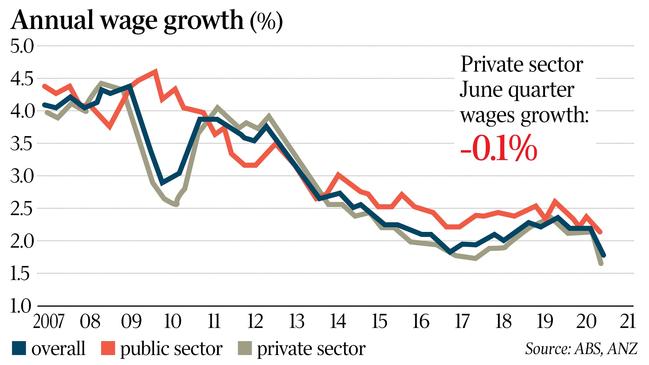
Australian Bureau of Statistics data released on Wednesday showed that national private sector pay fell by 0.1 per cent over the June quarter, the first fall in the history of the wage price index, stretching back to 1997. The quarterly result slowed annual private sector wage growth to 1.7 per cent.
In contrast, public sector wages lifted by 0.4 per cent over the quarter, bringing the year-on-year pace to 2.1 per cent.
With workers facing the prospect of stagnant wages, Australians relying on dividends also suffered a blow on Wednesday when the country’s biggest retail bank, CBA, alongside toll road operator Transurban and Seek, announced a combined $2.2bn in cuts to their payouts.
The grim wage rates data came as Westpac’s consumer sentiment survey showed Victoria’s COVID-19 outbreak and Melbourne’s stage-four lockdown had triggered a collapse in confidence across the nation’s east coast.
Mr Brennan called for a more flexible and “mature” approach to industrial relations, to get workers back into jobs sooner and drive wages higher.
He said there was a need to “reinvigorate enterprise bargaining” to help firms wanting to “do something innovative that is different from the award, but consistent with protecting minimum conditions”.
“We need employers and their staff to come to agreements about how they are going to meet the challenges coming out of the pandemic,” he said. “Putting a bit of faith in those firms and their workers to work it out between themselves is very important, and giving them enough flexibility to reach those agreements will be key to the recovery.”
ACTU secretary Sally McManus said on Wednesday that getting wages rising again was key to rekindling the economy, triggering a strong rebuke from business, which argued for job creation to be prioritised.
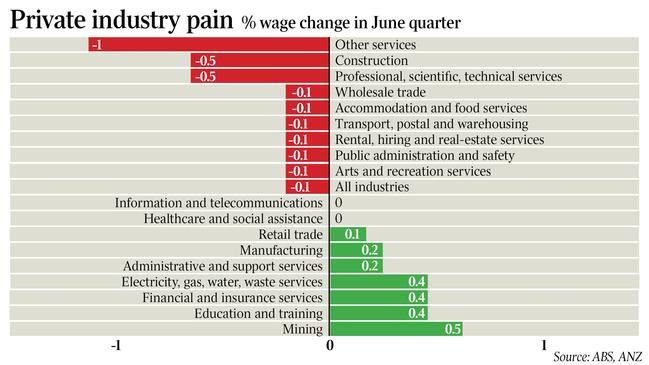
Australian Industry Group chief executive Innes Willox said many businesses were in a “fight for survival” and “forced wage spikes will only drive them to drop staff numbers or close down”. “The reality is that wages growth has matched prices growth in recent years,” Mr Willox said.
“We should expect that trend to continue. It is only once business gets back on its feet and regains confidence that we can resume a conversation on sustainable wages growth.”
Ms McManus said there was a “desperate” need for the Morrison government to formulate a jobs plan. “We need to put money in the hands of working people and give them the security they need to spend it,” she said. “If we don’t support working people, they can’t support the economy.”
The ABS data showed highly paid professionals and construction workers suffered outsized pay reductions through the national COVID-19 lockdown, falling by 0.5 per cent in the June quarter in original terms.
Those working in “other services” — which includes hairdressers and dry cleaners — suffered an even steeper 1 per cent drop in pay over the quarter.
Josh Frydenberg said the figures did not include the “unprecedented” income support being provided by the Morrison government, including its $101.3bn JobKeeper wage subsidy. “Our economic recovery depends on our ability to effectively contain the spread of the virus,” the Treasurer said. “The reintroduction of restrictions across Victoria is a major setback for the national economy, with today’s ABS numbers showing Victoria was the only state to see negative wages growth over the quarter.”
ABS head of price statistics Andrew Tomadini said the fall in private sector wages was “mainly due to a number of large wage reductions across senior executive and higher-paid jobs”.
The seasonally adjusted wage index lifted 0.2 per cent in the June quarter, bringing the annual pace to 1.8 per cent — also at record lows, the ABS reported.
Melbourne Institute professor Mark Wooden said it would be a mistake to focus on lifting pay rates, especially if that were that to come at the expense of jobs. He said the weakness in nominal wages masked a massive lift in real, or after-inflation, pay rates.


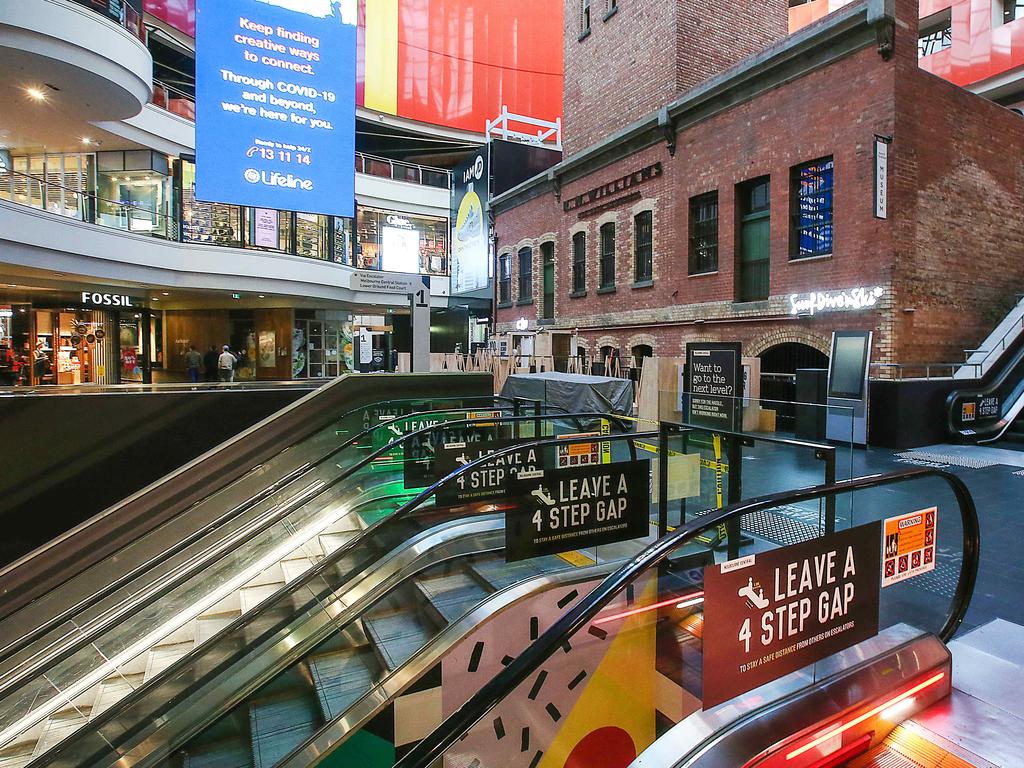
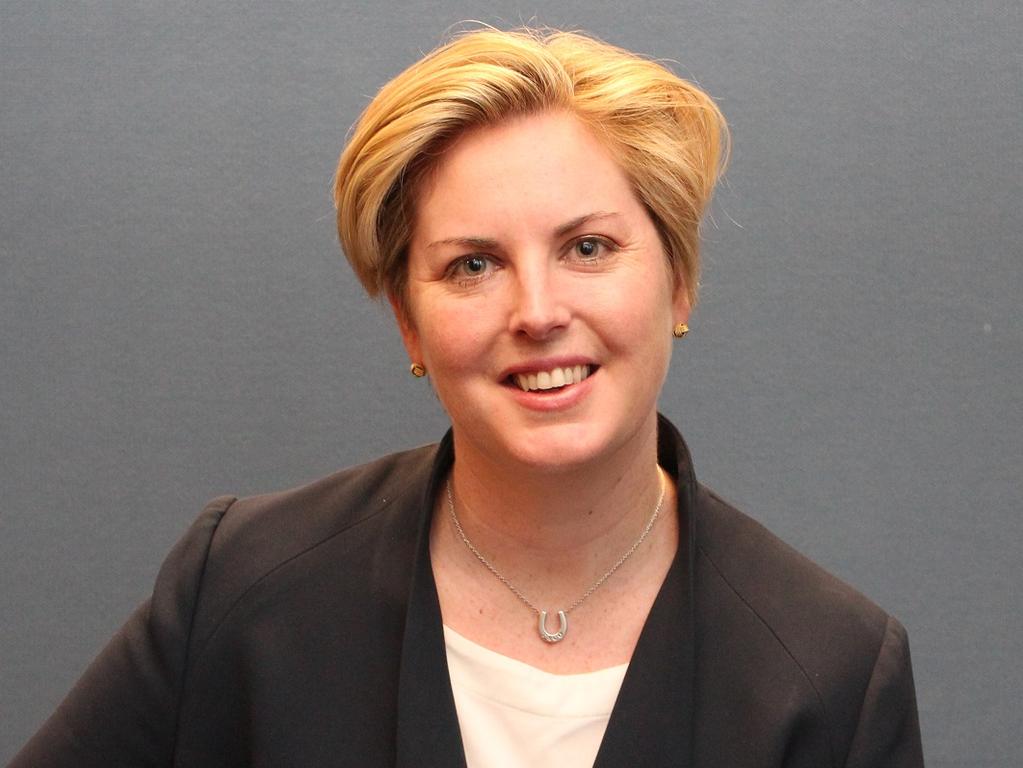




To join the conversation, please log in. Don't have an account? Register
Join the conversation, you are commenting as Logout